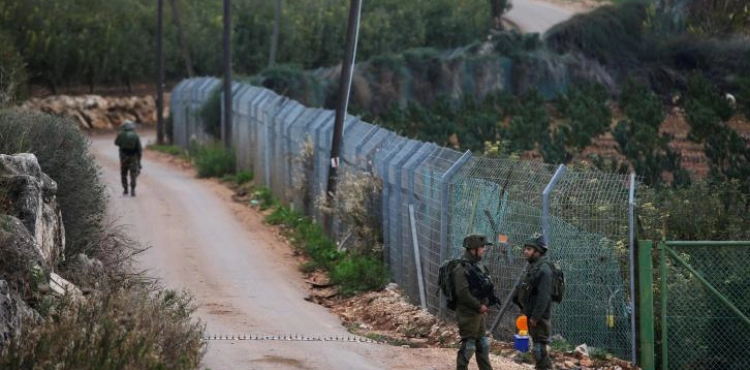Lebanon _ Agencies
The Israeli army on Sunday morning decided to strengthen its forces along the border with Lebanon, fearing infiltration by Hezbollah operatives and the occurrence of any event that would cause the situation in the field to develop.
According to the website of the newspaper "Yediot Aharonot", the Army decided to strengthen its forces after the incident of Hezbollah elements approached from the border yesterday. He noted that the deployment of troops would be along the border.
At 12 noon, the Israeli army will carry out court-controlled explosions under border control.
In the same vein, Israeli ministers have not ruled out the expansion of the process, which is still in its early stages.
"The army is working according to a clear plan inside Israeli territory to look for tunnels that have been dug inside the border," said the construction minister, Ioannis Galant, and one of the Cabenet ministers. Noting that the expansion of the process may be possible at any moment.
One of the reasons for launching the operation was to leak some information about the plan to the Hebrew media, he said, noting that there was a risk of a complete leakage of the operation plan and was therefore suddenly launched.
On the remarks of the outgoing Minister of the occupying army, Avigdor Lieberman, that what is going on is an engineering operation and not an operation, Galant said: "He is not familiar with military terminology, 30 years ago, when we brought the Ethiopian Jews to Israel secretly, we described it as an operation, even though there was not a single bullet."
He added: "We have a time bomb in the form of tunnels and we have to remove it, this process was done in a way that we deal with the northern threat first, and then we will deal with everything else."
He threatened to return Lebanon to the Stone age if Hezbollah fired rockets at Israel.
"The process will last a few months, and the process of destroying tunnels is complex," said Nafyty Bennett, education minister.
He described these tunnels as the last option of Hizbullah, through which it seeks to bring a large number of its elements into Israeli territory.
He noted that Hezbollah has some 140,000 rocket-propelled grenades, indicating that the majority of them are not accurate, yet they pose a threat.
He pointed out that Israel is closely monitoring Iran´s efforts to develop Hezbollah´s missile missiles and to make it highly capable of hitting targets.












